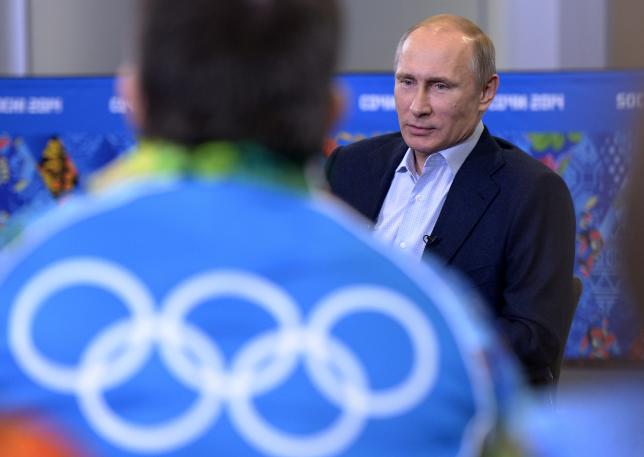
By Adrian Croft
BRUSSELS
(Reuters) - Russia, caught in a pre-Sochi Olympic uproar over gay
rights, accuses the European Union in a new report of trying to enforce
"an alien view" of homosexuality on other countries.
The accusation is contained in a 153-page "Report on the human rights
situation in the European Union", in which Moscow hits back at human
rights criticism it regularly faces from the West by listing what it
sees as rights failings in EU nations.
The report, presented in Brussels on Thursday by Konstantin Dolgov, the
Russian foreign ministry's human rights commissioner, said the EU and
its 28 member states saw it as a priority to disseminate their
"neo-liberal values as a universal lifestyle for all other members of
the international community".
"This is particularly evident in
their aggressive promotion of the sexual minorities' rights. Attempts
have been made to enforce on other countries an alien view of
homosexuality and same-sex marriages as a norm of life and some kind of a
natural social phenomenon that deserves support at the state level,"
the English version of the report said.
"Such an approach encounters resistance not only in the countries
upholding traditional values, but also in those countries which have
always taken a liberal attitude towards queers," it said.
It gave as an example the opposition of many French people to the legalization of same-sex marriage last year.
Russia, preparing to host the Winter Olympics in Sochi next month, has
come under fire from human rights activists over a law banning the
dissemination of "gay propaganda" among minors.
Activists say the law is part of
a crackdown on freedoms under President Vladimir Putin, who travels to
Brussels next Tuesday for a summit with EU leaders.
CRITICISM
Pop singer Elton John spoke out on Wednesday against the Russian law,
saying it legitimized homophobia and provided legal cover to extremists.
U.S. President Barack Obama has included three openly gay athletes in
the official U.S. delegation to the Sochi Olympics in a move he made
clear was intended to send a pointed message to Russia about gay rights.
Former tennis star Billie Jean King, Olympic figure skating champion
Brian Boitano and Olympic ice hockey medalist Caitlin Cahow were among a
group of prominent Americans named to represent the United States at
the Games' ceremonies.
Dolgov warned athletes not to use the Olympics as a podium to campaign against the Russian law.
"If a skater is planning to come
as a member of the Olympic team not to compete, but to fight against a
law in the host country, it is very bad. It means that this particular
skater does not respect Olympic principles, principles of the Olympic
movement," he said at a news conference, without saying who he had in
mind.
The Russian report said
the most pressing human rights issues in the EU included a steady
growth of xenophobia, racism, violent nationalism, chauvinism and
neo-Nazism.
Grave violations
of the rights of minorities, refugees and migrants were increasing in EU
countries, and social rights of citizens were being infringed, the
report said.
"No country is immune to human rights issues and problems. Nobody's record is perfect," Dolgov said.
(Editing by Sonya Hepinstall)
No comments:
Post a Comment